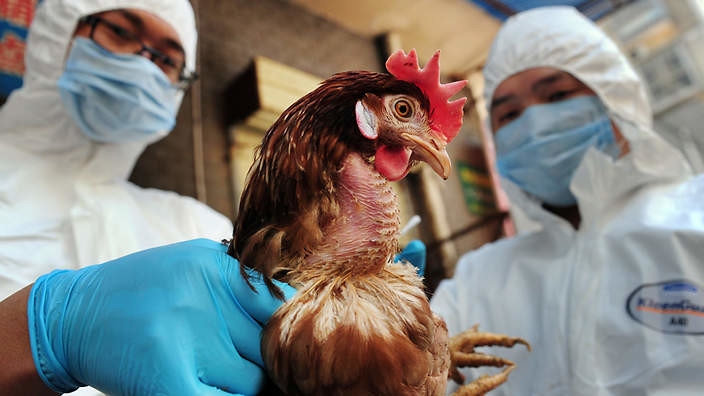Bird flu: EU urgent meeting after Netherlands outbreak
Published on 17 november 2014The commission will hold an urgent meeting on Monday to look at how to contain the outbreak.
The Dutch government said the strain, H5N8, could potentially affect humans.
The authorities have already begun destroying 150,000 hens at the infected farm, in the village of Hekendorp.
"This highly pathogenic variant of avian influenza is very dangerous for bird life," the Dutch government said in a statement.
"The disease can be transmitted from animals to humans."
The Dutch economics ministry says humans could only be infected through very close contact with infected birds.
The authorities have imposed a three-day nationwide ban on the transportation of poultry and eggs.
Reuters quoted EU spokesman Ricardo Cardoso as saying: "The commission is expected to adopt tomorrow, Monday... a decision with urgent interim protective measures in relation to this outbreak."
The farm at Hekendorp reportedly sold eggs rather than poultry. Its produce was sold primarily in the Netherlands, with some also exported to Germany.
Earlier this month, a farm in Germany detected cases of the highly infectious H5N8 strain, which had previously not been reported in Europe.
The strain has never been detected in humans, but an outbreak in South Korea meant millions of farm birds had to be slaughtered to contain it.
Meanwhile officials in the UK have confirmed at least one case of bird flu in Yorkshire, but insisted the risk to public health was "very low".
A cull of poultry is being carried out at the site and an exclusion zone is in place.
The strain has not been confirmed, but the deadly H5N1 form has been ruled out by officials.
According to the World Health Organization, between 2003 and December 2013 there were 648 confirmed human cases of H5N1 infection in 15 countries, leading to 384 deaths.
Source: BBC news


